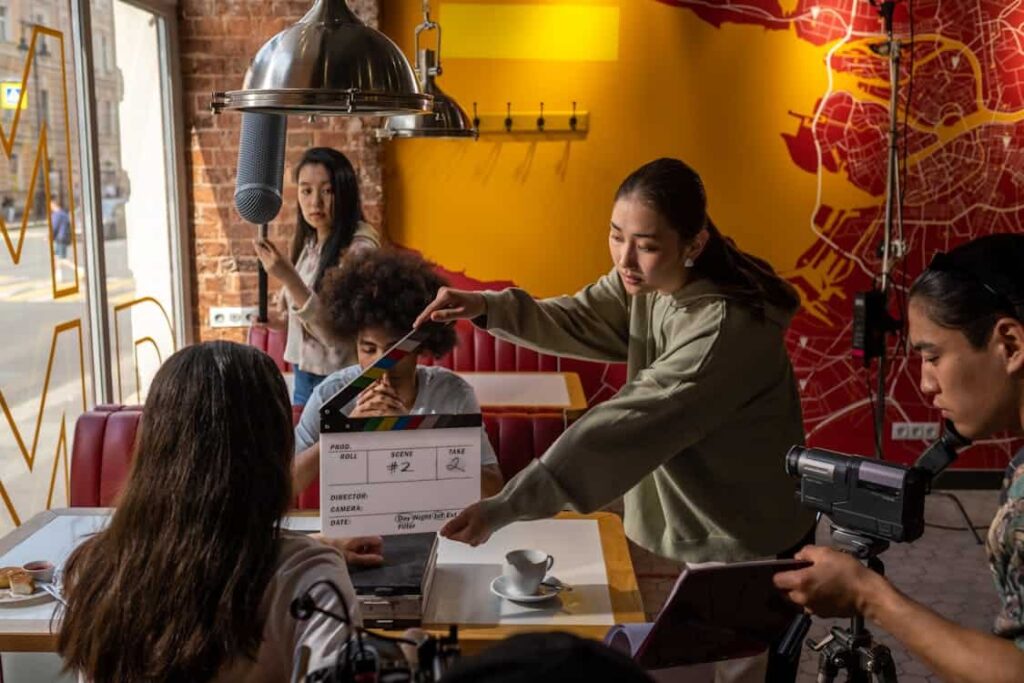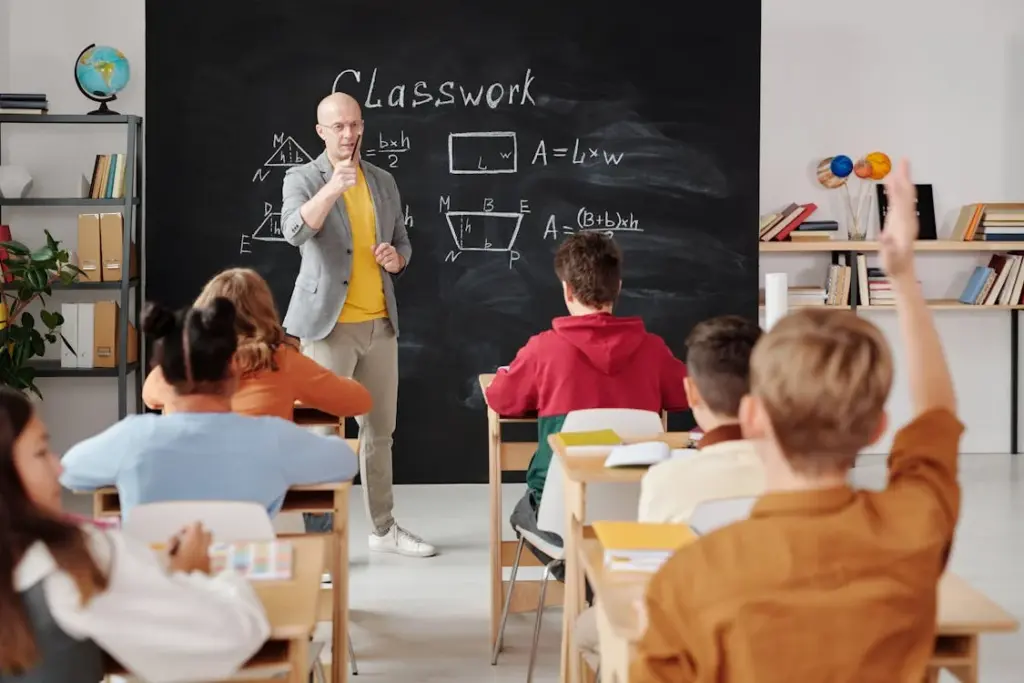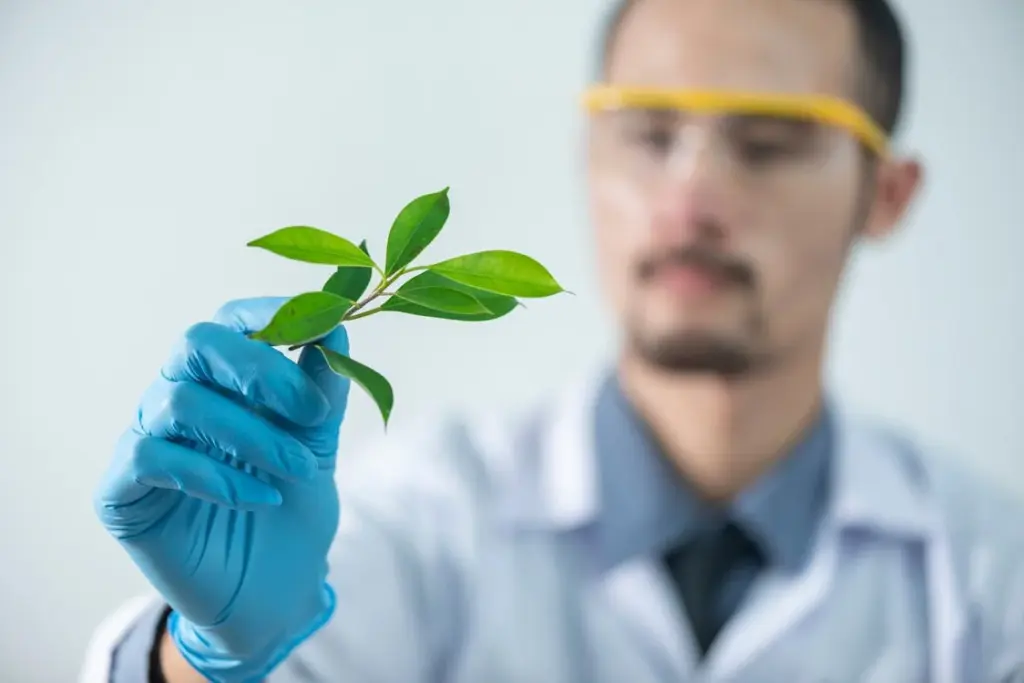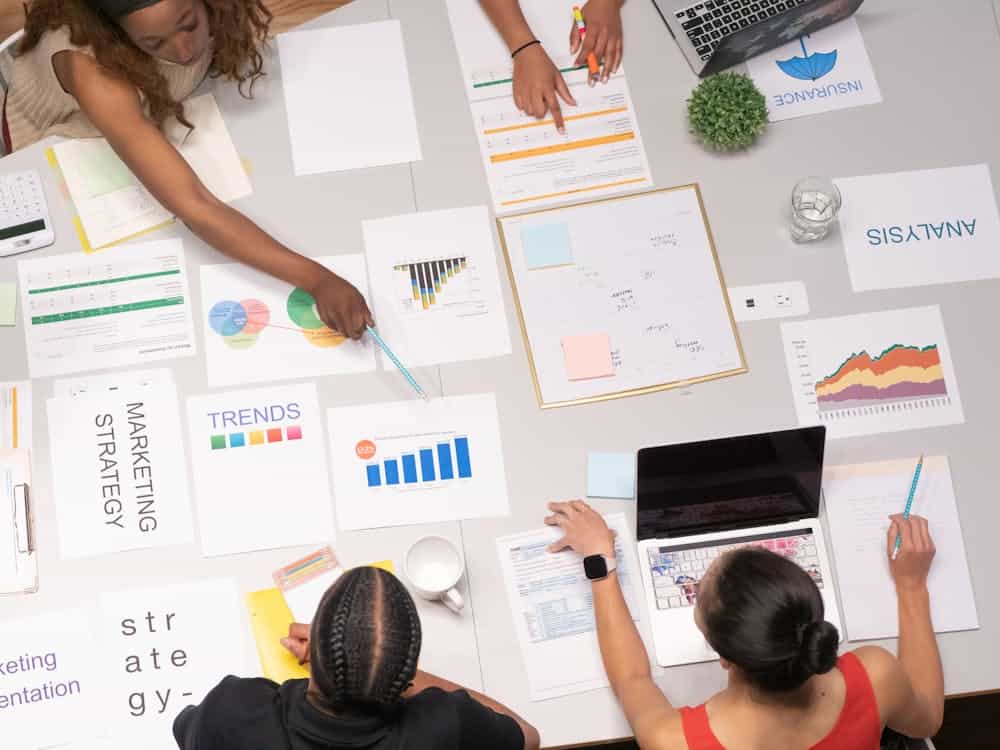21 Jobs AI Won’t Replace in the Near Future


The fast growth of artificial intelligence (AI) has caused worry about its effect on regular jobs. Will machines take over the jobs of skilled workers, teachers, or creative people? While machines can make work faster, they cannot copy human qualities like kindness, creativity, and the ability to change.
A report by The World Economic Forum says that by 2027, new AI and machines will cause a loss of about 14 million jobs worldwide. Even with this large number, jobs that need human creativity, kindness, and new ideas will still be very important and help move us forward with new technology.
This article looks at 21 jobs where human skill, feelings, and gut sense are better than technology. These jobs show why traits only humans have, like solving problems, guiding others, and sharing emotions, are still needed.
So, which jobs do well because of our special human strengths? Let us know what you think, and make sure to see the last job on the list!
Legal Professionals

Lawyers and judges need careful thinking and strong ideas about right and wrong, skills that go beyond what AI can do. They study cases and predict results with original thinking. Legal workers deal with complicated systems that need smart understanding and human judgment.
They judge if witnesses are honest and speak up well. These skills are key to keeping fairness and trust in the law. Lawyers also connect with clients, giving comfort and advice.
Clear talking helps build trust during tough legal times. This kind of support is a vital part of law work.
Creative Professionals

Writers, designers, and artists stretch the limits of human expression, which AI cannot truly do. Creative workers use culture, life experiences, and feelings to create special stories and images. They motivate, make people think, and build connections with their audiences.
These unique human qualities keep art and design important over time. The creative work includes working together, giving feedback, and improving, all needing human insight. These professionals connect deeply with people and clients. Machines cannot copy these feelings and cultural links.
Event Planners

Event planners design memorable experiences, requiring creativity and adaptability to changing circumstances. They handle logistics while managing client preferences and emotions. AI can assist in organization but cannot replace the human touch.
Planners anticipate unique challenges and find quick solutions during live events. They address unexpected delays, weather issues, or guest concerns. Their ability to remain calm under pressure ensures successful outcomes.
Strong interpersonal skills help them build vendor relationships and understand client visions. Personal connections drive effective collaboration. These traits ensure events feel personal and meaningful.
Skilled Trades

Electricians, plumbers, and HVAC workers face special on-site problems that AI cannot handle. These jobs need hands-on work and quick thinking to fix things. AI can help identify problems but cannot do the actual repairs.
These workers deal with changing conditions like old pipes or weather damage. They solve issues by using their touch and judgment right away. These situations show why human skill and care are very important.
Trades also include talking with customers to build trust. Workers explain problems, discuss prices, and make sure customers are happy. These personal connections help keep clients coming back, something machines cannot do.
Healthcare Professionals

Nurse practitioners are projected to grow by 45.7% by 2032, making it one of the most AI-resistant careers due to various factors such as an aging population and increased healthcare needs. AI will assist but never replace healthcare providers who rely on empathy and hands-on expertise.
Doctors, nurses, and therapists develop personalized care plans that no algorithm can replicate. Human intuition and emotional connection are essential for patient trust and well-being. These roles demand critical thinking, creativity, and adaptability to unpredictable medical situations.
AI can analyze data, but humans make life-saving decisions. Emotional intelligence is critical when comforting patients or explaining complex treatments. Healthcare professionals also advocate for patients, a task no AI can effectively perform.
Educators

Educators encourage creativity, feelings, and love of learning, things AI cannot do completely. Teachers change lessons to match each student’s way of learning and needs. They help people grow by giving support, care, and advice.
They see problems, help with emotional challenges, and support personal growth. These jobs need kindness and flexibility that only people have. Classrooms rely on human sense and bonds.
Teachers lead lively talks that fit different learners. This human care makes links that no machine can take the place of.
Veterinarians

Veterinarians assess non-verbal cues to diagnose and treat pets. This intuition goes beyond the data analysis AI can provide. They educate pet owners on health concerns and emotional needs. These interactions require patience and clear communication.
Owners trust veterinarians for both expertise and empathy in difficult situations. Veterinarians also perform surgeries and other hands-on procedures. Precision and adaptability during treatment are critical. These practical skills cannot be automated effectively.
 If you like what you are reading, then click like and subscribe to my newsletter. We share tips to waste less time and money.
If you like what you are reading, then click like and subscribe to my newsletter. We share tips to waste less time and money.
Sports Coaches

Sports coaches teach and motivate athletes, making quick decisions and keeping spirits high. They change plans during games based on how players do. AI can’t copy the human feeling that leads to these sudden changes.
Coaches build teamwork by knowing each player’s skills and how they work together. They help athletes get through hard times, growing their strength. This support helps athletes improve both in sports and in life.
Strong feelings make athletes work harder than they thought possible. Coaches encourage commitment and build trust in ways machines can’t. These close connections are key to winning in sports.
Environmental Scientists

Environmental scientists tackle complex, evolving challenges that demand critical thinking and ethical decision-making. They analyze ecosystems and develop strategies for sustainability. AI cannot address these nuanced environmental concerns independently.
Scientists balance data with field observations, uncovering patterns beyond algorithms. They adapt to changing conditions during research. This human insight ensures practical, actionable solutions to ecological problems.
Their work often involves community outreach to promote conservation efforts. Building awareness requires empathy and communication skills. These qualities make them indispensable in preserving our planet.
Childcare Providers

Childcare workers support children’s emotional and social growth by caring, playing, and guiding them. They meet each child’s special needs every day. AI cannot show the kindness and understanding needed for this important work.
Workers help children learn how to get along with others and try new things through fun activities. These moments help build children’s confidence and ability to adjust. Being with caring people helps children feel safe and important.
Childcare also means handling surprises like tantrums or sickness. It takes quick responses and patience. Only people can offer this kind of careful attention.
Mediators

Mediators resolve conflicts through communication, empathy, and creative problem-solving. They guide individuals toward compromises that address unique concerns. AI lacks the nuance required for emotional negotiation.
Mediators assess body language and tone to understand deeper intentions. They adapt strategies to foster cooperation. These interpersonal skills create balanced solutions that benefit all parties.
Effective mediation builds trust between conflicting individuals or groups. Mediators maintain impartiality while addressing emotional needs. This human element ensures lasting peace and understanding.
Fashion Designers

Fashion designers make clothes that show culture and personal style. Their creativity mixes beauty with useful features. AI can help with making clothes but can’t take over the artist’s ideas.
Designers know how people feel about style and turn those feelings into clothes you can wear. They create new looks with texture, color, and shape. These human ideas connect strongly with people who want to be unique.
Working with clients and makers is a big part of their job. Designers share their ideas and change them based on advice. This process needs good judgment and people skills.
Humanitarian Workers

Humanitarian workers address urgent global issues through compassion and hands-on action. They respond to crises with care and dedication. AI can support logistics but cannot replicate their personal impact.
They coordinate aid distribution and provide emotional support during disasters or conflicts. Their adaptability ensures effective solutions for unique cultural and situational challenges. This resilience makes them invaluable in high-pressure environments.
Humanitarian roles also involve building trust with affected communities. Workers listen to needs and advocate for sustainable change. These deep, meaningful connections require empathy only humans can offer.
Marketing Strategists

Marketing planners make strong campaigns by knowing feelings, trends, and how people act. They tell stories that connect with people deeply. AI tools help but cannot match creativity and cultural understanding.
Planners guess what customers like by studying small mental and social signals. They change campaigns based on quick feedback. This helps keep their work useful and strong.
Making good bonds with clients and audiences is key to their job. Human sense creates trust and loyalty to brands. These qualities make their work one of a kind.
Mental Health Counselors

According to recent data, from 2022 to 2032, employment for many mental health-related occupations is projected to grow faster than the 3-percent average for all occupations. Mental health counselors provide emotional support and guidance that AI cannot replicate.
These professionals offer empathy, active listening, and personalized coping strategies. Their human connection fosters trust and healing in ways algorithms cannot. Counselors identify subtle emotional cues through conversation and body language.
This insight helps them adjust approaches during sessions. AI lacks the ability to assess and address deeply personal experiences with nuance. These relationships build resilience and promote long-term emotional growth.
Occupational Therapists

Occupational therapists improve quality of life by helping individuals regain independence in daily tasks. They develop personalized approaches for diverse needs. AI lacks the empathy required for this transformative care.
Therapists use creative problem-solving to address physical or mental challenges. They adjust techniques based on client progress. This adaptability ensures practical, meaningful outcomes for individuals.
Building trust and offering encouragement are essential components of therapy. Patients thrive through these supportive relationships. Such connections make therapists irreplaceable in this field.
Social Workers

Social workers help people in need by offering emotional support and linking them to helpful resources. They look at each situation carefully and with kindness. AI cannot replace their personal way of solving problems.
These workers deal with hard family, money, or health issues using care and real advice. They make plans that fit each person’s needs. This personal care makes life better in ways machines cannot.
Social workers form close bonds based on trust and kindness. They provide comfort in tough times. These human links leave a strong, lasting effect in communities.
 If you like what you are reading, then click like and subscribe to my newsletter. We share tips to waste less time and money.
If you like what you are reading, then click like and subscribe to my newsletter. We share tips to waste less time and money.
Urban Planners

Urban planners design cities that balance practicality, beauty, and sustainability. They analyze community needs and develop long-term solutions. AI supports data analysis but cannot replicate human vision.
Planners account for cultural, economic, and environmental factors during project development. They adapt designs to evolving circumstances. This flexibility ensures spaces remain functional and welcoming.
Collaboration with governments, architects, and residents is key to their work. Planners communicate visions and address concerns effectively. These partnerships create cities that prioritize human well-being.
Renewable Energy Technicians

Renewable energy technicians set up and take care of systems like solar panels or wind turbines, using their technical skills and care for the environment. Their work helps meet goals for clean energy. AI can help find problems but cannot do difficult installations.
They check each site’s special needs and make sure systems work well. Their ability to adjust helps solve problems during installation and repairs. These practical skills keep energy coming steadily.
Technicians also teach clients how to use and care for their systems. Clear talk builds trust and supports lasting green energy. This personal touch helps create long-term energy solutions.
Culinary Chefs

Chefs create meals that combine flavor, presentation, and emotional connection. They innovate recipes to satisfy diverse tastes. AI cannot replicate the passion behind a perfectly crafted dish.
Chefs adjust techniques during cooking, ensuring dishes meet high standards. They adapt recipes to match local preferences. This artistry defines culinary excellence and customer satisfaction.
Culinary professionals also lead kitchen teams with clear communication and creativity. Their leadership ensures harmony in high-pressure environments. This dynamic collaboration makes dining experiences unforgettable.
Librarians

Librarians help people find information and encourage a love of learning. They choose resources to suit the needs of their community. AI cannot match their strong understanding of human curiosity.
These professionals adjust their advice to fit different education levels and interests. They give readers personal suggestions that connect with them. This bond helps people enjoy learning in meaningful ways.
Librarians also make friendly spaces that inspire discovery and thought. Their work supports habits of learning that last a lifetime. These efforts make communities better and support growth in knowledge.
Why These Roles Will Always Matter

As we accept the advantages of AI, it is clear that technology has its limits. Jobs like teaching, event planning, or environmental science depend on the special qualities of human understanding, kindness, and creativity.
These skills build our culture, support our communities, and help us grow as people. Instead of thinking of AI as a danger, we can view it as a tool that works with, not replaces, human skills.
By appreciating these one-of-a-kind human roles, we make sure the future is one where technology improves our lives without taking away the bonds that make us truly human. Which of these roles do you think will shape the next generation?
 If you like what you just read, then subscribe to my newsletter.
If you like what you just read, then subscribe to my newsletter.
- 23 (Easy To Get) Certifications If You Want A High Paying Job
- 21 Jobs That Pay Surprisingly Well Without a Degree
AI was used for light editing, formatting, and readability. But a human (me!) wrote and edited this.





